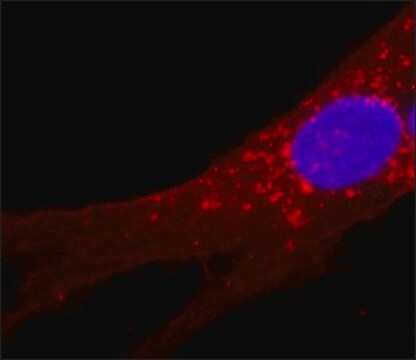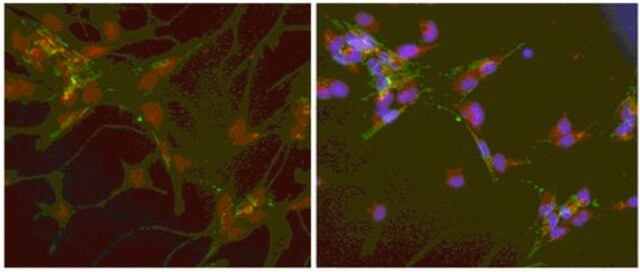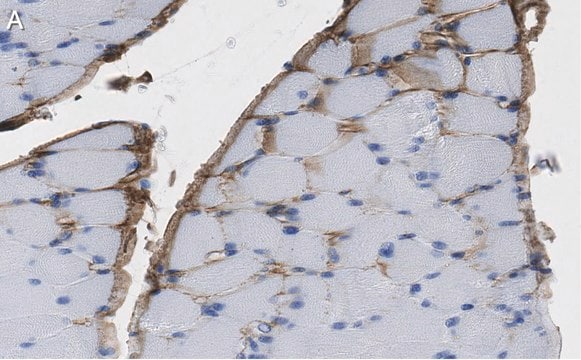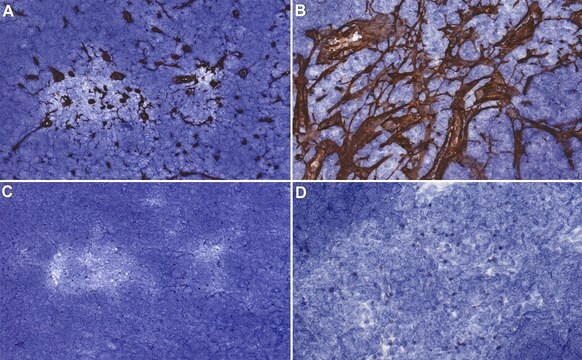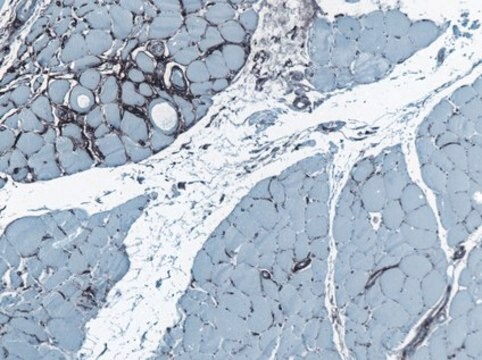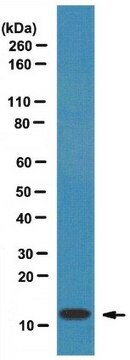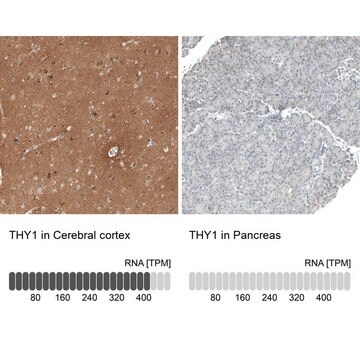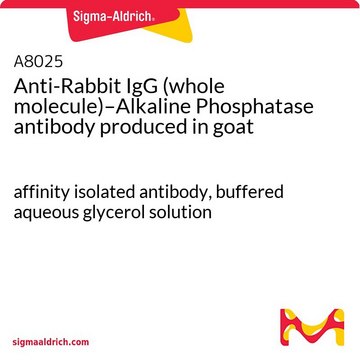SAB4200821
Anti-Fibroblast Surface Protein antibody, Mouse monoclonal
clone 1B10, purified from hybridoma cell culture
Sinonimo/i:
FSP
About This Item
Prodotti consigliati
Origine biologica
mouse
Forma dell’anticorpo
purified from hybridoma cell culture
Tipo di anticorpo
primary antibodies
Clone
1B10, monoclonal
Reattività contro le specie
human
Confezionamento
antibody small pack of 25 μL
Concentrazione
~ 1 mg/mL
tecniche
immunofluorescence: 5-10 μg/mL using Human foreskin fibroblast Hs68 cells.
Isotipo
IgM
Condizioni di spedizione
dry ice
Temperatura di conservazione
−20°C
modifica post-traduzionali bersaglio
unmodified
Informazioni sul gene
human ... S100A4(6275)
Categorie correlate
Descrizione generale
Specificità
Immunogeno
Applicazioni
Azioni biochim/fisiol
Stato fisico
Stoccaggio e stabilità
Esclusione di responsabilità
Non trovi il prodotto giusto?
Prova il nostro Motore di ricerca dei prodotti.
Raccomandato
Codice della classe di stoccaggio
12 - Non Combustible Liquids
Classe di pericolosità dell'acqua (WGK)
nwg
Punto d’infiammabilità (°F)
Not applicable
Punto d’infiammabilità (°C)
Not applicable
Scegli una delle versioni più recenti:
Certificati d'analisi (COA)
Non trovi la versione di tuo interesse?
Se hai bisogno di una versione specifica, puoi cercare il certificato tramite il numero di lotto.
Possiedi già questo prodotto?
I documenti relativi ai prodotti acquistati recentemente sono disponibili nell’Archivio dei documenti.
Global Trade Item Number
| SKU | GTIN |
|---|---|
| SAB4200821-100UL | |
| SAB4200821-25UL |
Il team dei nostri ricercatori vanta grande esperienza in tutte le aree della ricerca quali Life Science, scienza dei materiali, sintesi chimica, cromatografia, discipline analitiche, ecc..
Contatta l'Assistenza Tecnica.